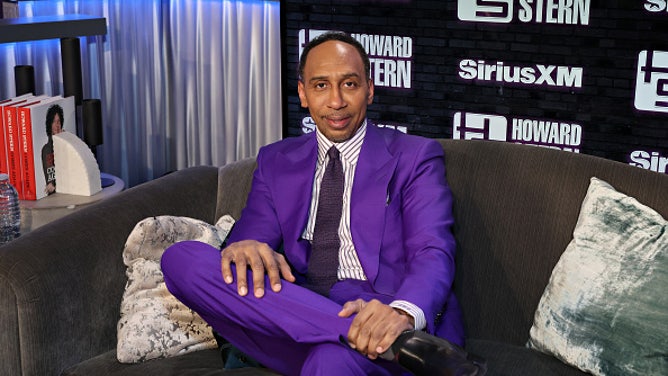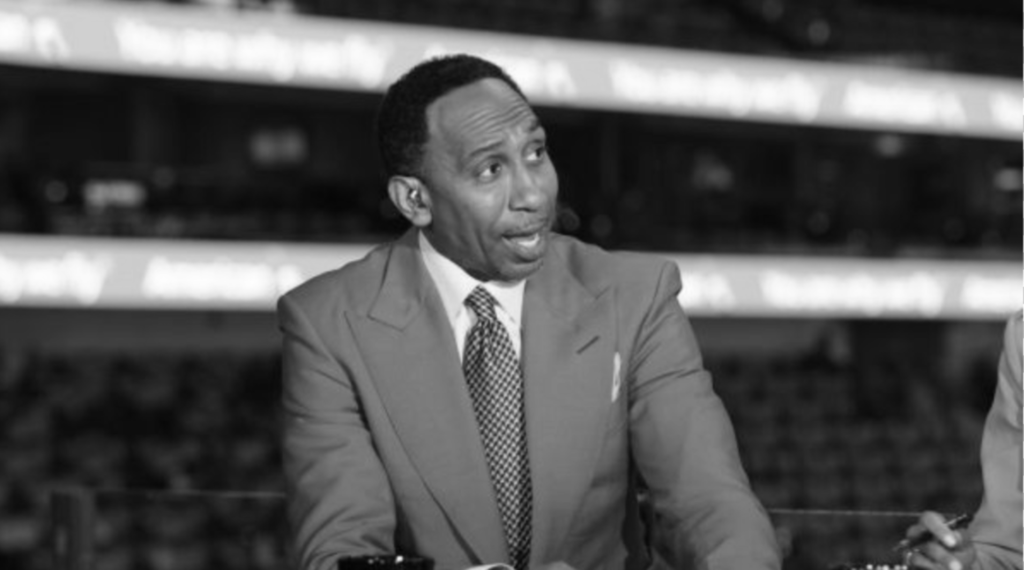ESPN recently offered Stephen A. Smith a $90 million contract over five years, at $18 million per year. Smith is expected to turn down the offer, seeking closer to $25 million annually.
We anticipate ESPN will, eventually, meet Smith’s demands.
He holds leverage behind the scenes. The race card is firmly in his back pocket. He is already using it, lamenting that three white men – Joe Buck, Troy Aikman, and Pat McAfee – make more than him.
Sources tell OutKick that executives within ESPN fear Smith becoming its fiercest critic on the outside. He already criticizes the company on his self-owned podcast. Imagine what he’d say about the network if it didn’t pay him what he wants.
But Smith also holds leverage on-air.
ESPN has lost plenty of signature faces of the company before: Dan Patrick, Bill Simmons, Colin Cowherd, Mike Tirico and Keith Olberman (in the 90s, pre-derangement) to name a few.
The difference is that there were readily available pundits to take their place. That is not the case today. Not only is Stephen A. the biggest star at ESPN, but the company has failed to develop a suitable bench behind him.

NEW YORK, NY – JANUARY 23: Stephen A. Smith visits Sirius XM’s “The Howard Stern Show” at Sirius XM Studios in New York City on January 23, 2024. (Photo by Cindy Ord/Getty Images, Courtesy of Sirius XM)
Over the past decade, ESPN has tried to promote players like Bomani Jones, Katie Nolan, Mina Kimes, Sarah Spain and Maria Taylor, but none of them have proven their worth.
Jones, Nolan and Spain were given shows that flopped, Taylor destroyed himself trying to cash in on the Black Lives Matter protests of 2020, and Kimes is still with ESPN but is doing little to boost the ratings.
Simply put, ESPN prioritized diversity and PR over the interests of sports fans, and as a result, viewers who once worshipped ESPN commentators now despise them.
And the trend continues today: Instead of investing in sports-loving, audience-caring talent like Laura Rutledge, Matt Barry, Frank Isola and Jorge Sedano, the network has decided to use its resources to promote preachy, privileged brats like Monica McNutjob, Chiney Ogwumike and in-house bully Ryan Clark.
Stephen A. should be pleased to know that his successors are far from impressed.
Last year, we explained how ESPN’s failure to produce a new wave of star personalities led the network to lease an established star, Pat McAfee: ESPN agreed to pay McAfee, who is not an employee, a total of about $30 million per year.
With Smith gone, ESPN would be left with McAfee and several other big names over the age of 50, including Michael Wilbon, Mike Greenberg, Scott Van Pelt and Tony Cornescia. If the company had been better at investing in its talent, it probably wouldn’t have had to pay Smith the amount he demands.
By comparison, Fox News host Jesse Watters was a star from day one when he moved to primetime in 2021. Greg Gutfeld was also a star when he moved to late night a year later. ESPN doesn’t have the talent of Watters or Gutfeld.
ESPN executive Burke Magnus recently said Smith’s flagship morning show, “First Take,” would continue even if he leaves the company. The leading candidate to replace him is Shannon Sharpe, but it would be unwise to rely on a woman with a notoriously temperamental personality.
Other than Sharpe, there are few options. First Take with Elle Duncan will likely rival High Noon with Bomani Jones as the least successful show in ESPN history.
So Stephen A. Smith gets what he wants for what he wants. ESPN feels they need to keep him, even if they have to pay him a lot of money. And at $25 million a year, Smith is overpaid.
His value to ESPN depends on cable ratings, and the cable industry is in steep decline. Paying Smith that much for a cable star is the equivalent of newspapers paying reporters seven figures a decade ago.
Smith wants a five-year deal. In five years, cable TV will be 30% less important than it is today. ESPN’s future is in live rights and streaming+, neither of which Stephens is committed to.
Forget the all-purpose ace card, it will still work. ESPN’s failure to build for the future is Stephen A’s biggest impact.
Note: Fox News and OutKick are jointly owned.

